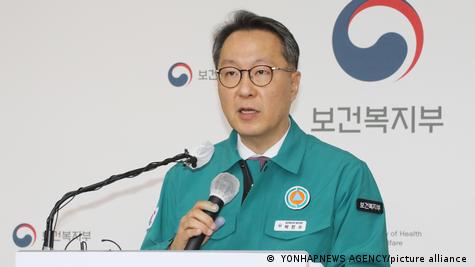The South Korean government has taken a firm stance against the ongoing strike by thousands of trainee doctors, declaring it unjustified and issuing a directive for their immediate return to work. The walkout, spurred by discontent over government plans to expand medical student enrollment, has disrupted healthcare services across the nation.
The strike, which began in response to South Korea’s proposal to significantly increase the number of medical students, has drawn criticism from government officials who argue that such reforms are essential to address a shortage of qualified physicians. However, the protesting doctors contend that improvements in working conditions and compensation should precede any expansion in student numbers.

Interior and Safety Minister Lee Sang-min emphasized during a media briefing that collective action affecting public health and safety cannot be justified under any circumstances. Second Vice Health Minister Park Min-soo echoed these sentiments, highlighting the obligation of medical professionals to safeguard the well-being of the populace.
The walkouts have strained the South Korean medical system, leading to postponed surgeries and disrupted medical treatments. To mitigate the impact, the government has authorized the temporary opening of military medical facilities to the public.
Despite the government’s warnings, trainee doctors remain steadfast in their protest, asserting that the back-to-work order amounts to intimidation. The Korean Intern Resident Association criticized the government’s neglect of trainee doctors’ concerns, denouncing the treatment of healthcare professionals as “criminals” for exercising their right to protest.
Amidst the dispute, some groups have suggested that the proposed medical student reforms are politically motivated ahead of legislative elections. However, public opinion appears to support the government’s initiatives, with a recent Gallup Korea poll indicating that 76% of South Koreans favor the changes.
As tensions persist between the government and striking doctors, the healthcare sector faces uncertainty, with the potential for further disruptions to medical services. The outcome of this standoff will not only shape the future of medical education and healthcare delivery in South Korea but also test the resolve of both authorities and healthcare professionals in addressing critical issues within the sector.






